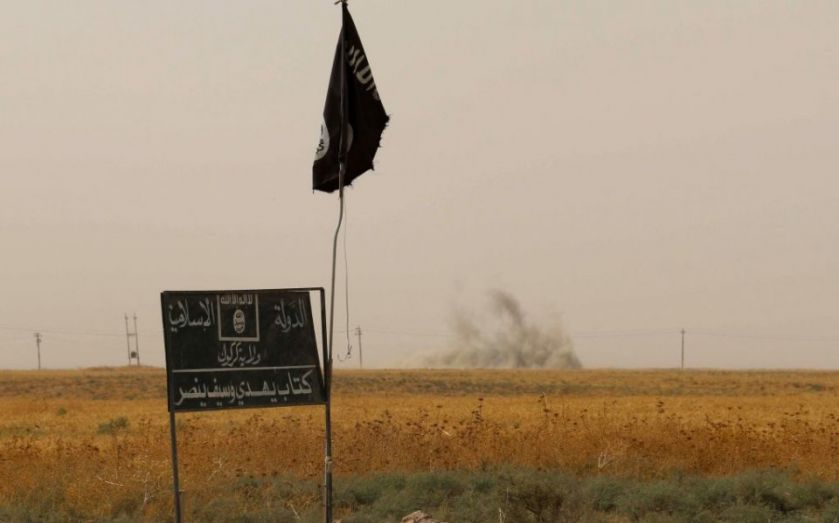Syria crisis: How to defeat Isis in five steps without misleading the public

While the Prime Minister searches in vain for the 70,000 moderate Syrian troops on the ground he disingenuously promised were just waiting for UK air strikes to begin before they rose up against Isis, I thought we might better occupy our time by actually laying out how the terror state can be strategically defeated.
Ironically, the plan is already largely in place. But if the Obama administration – as has proven so often the case – is broadly correct in its strategic thinking, it is absolutely dire at communicating to the wider world what it is doing. So I will endeavour to fill the breach.
To defeat Isis, first its expansion must be contained in both Syria and Iraq. With the lustre of its invincibility quashed, Isis becomes just another global problem, rather than a popular jihadist cause.
Second, to accomplish this task, air strikes must be operationally employed to support regional and local anti-Isis forces on the ground that are broadly pro-western. This means supporting the Iraqi Kurds (who, with the aid of western strikes, have already re-taken all of the territory in northern Iraq Isis briefly snatched from them in the summer of last year), the Syrian Kurds, Sunni tribal leaders in Iraq’s Anbar province, the hapless Iraqi army, and even – if only tacitly – pro-Iranian militias emanating from Baghdad. Given that the unholy trinity of Assad, al-Qaeda, and Isis roam Syria, the West must be very careful that any bombing there does not unwittingly help other forces of evil.
Third, given these real world limitations – that at present there are almost no reliable Syrian forces on the ground we would wish to help – the focus of our efforts must be on Iraq, where such troops actually exist.
Fourth, in addition to providing military support in Iraq, it is even more important that the US and the West in general strongly push the well-meaning but hapless Iraqi government of Haider al-Abadi to immediately commence dramatic political reforms, leading to a confederal Iraq emerging where the three basic ethno-religious units – the Kurds in the north, the Sunnis in the west and centre, and the Shia in the south of the country – all have a great measure of local autonomy.
It must be made clear that this is the last, best, chance for Iraq. After a decade of promises of political reform that have led nowhere, a failure on Baghdad’s part to act – and act now – would require the West to accept the inevitable: that Iraq has ceased to be a state. Instead, we would work with its constituent parts rather than going through the central government in Baghdad, for instance, as US defence secretary Ash Carter suggests, arming the Sunni tribal leaders directly.
Fifth, having put this containment structure in place, the West must show real strategic patience, allowing the significant governance problems afflicting Isis to lead to its downfall over the next five to ten years. For the key to defeating Islamic State lies in its name: as a state, it has to administer territory, something it is not altogether comfortable doing. Further, looking at its circumstances in objective, realist terms, it is clear that Isis rules a geographically vulnerable, fragile state, with an economically unsustainable resource base.
It has huge funding problems. Oil production – the economy’s mainstay – has declined as Isis lacks the technical expertise to keep the wells flowing and its infrastructure is already being bombed (and should be bombed some more). There is a huge brain drain occurring in Isis-controlled territory. Of its original 4m people, at best many hundreds of thousands of the most educated and the most capable have fled its savage regime; people have voted with their feet. To survive, Isis needs fewer uneducated foreign mercenaries and more engineers, entrepreneurs, lawyers, doctors, teachers, and administrators.
The people running the place are economic illiterates, with a very poor grasp of the value of property rights, and an unpredictable system of taxation; there are already signs of rampant inflation in the major cities of Raqqa and Mosul. In fact, there is little doubt this whole creaking edifice will collapse over time.
It is true that Isis will fail even faster under coordinated, concentrated political and military pressure generated by the West. But we must use our brains, and not just our hearts, striving to do good rather than to feel good. That means western leaders must clearly articulate this entirely achievable strategy for destroying Isis to western publics honestly, and then armed with their unflinching support, act on it.